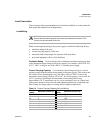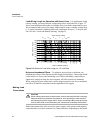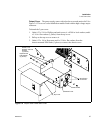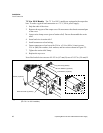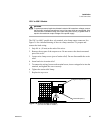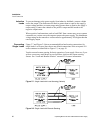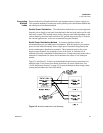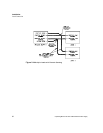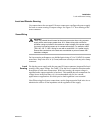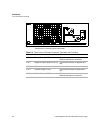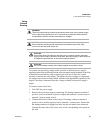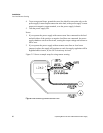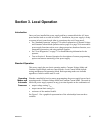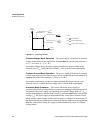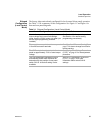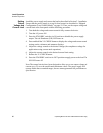
Installation
Local and Remote Sensing
Release 2.1 53
Local and Remote Sensing
Use connections at the rear panel J10 sense connector to configure the power supply
for local or remote sensing of output voltage. See Figure 2.11 for a drawing of the
sense connector.
Sense Wiring
For lowest noise performance, use shielded pair wiring of 16 to 24 AWG for remote
sense lines. Strip wires 0.26 in. (6.5 mm) and insert securely as with any wire clamp
connector.
Local
Sensing
We ship the power supply with the rear panel J10 sense connector jumpered for local
sensing of the output voltage. See Table 2.5 for the list of connector functions and a
description of local sense connections. With local sensing, the output voltage is
regulated at the output terminals (or bus bars). This method does not compensate for
voltage losses in the load lines, so it is recommended only for low current
applications or applications for which precise load regulation is not essential.
Note:When using local sense connections, use the largest practical load wire size to
minimize the effects of line impedance on the regulation of the supply.
WARNING
There is a potential shock hazard at the sense connector when using a power
supply with a rated output greater than 40 V. Select wiring with a minimum
insulation rating equivalent to the maximum output voltage of the power supply
for use as local sense jumpers or for remote sense wires. For example, select
TEW-105, 105 °C, 600 V wiring for use with a model 600 V, 4 A power supply.
Ensure that connections at the load end are shielded to prevent contact with
hazardous voltages.



